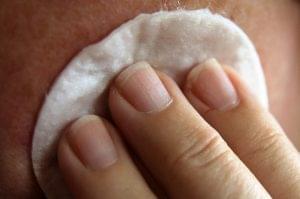Skin beautification doesn’t just depend on creams – what does the dietitian say?
The beauty industry has long emphasized the role of topical skin care products, while there is growing evidence that the quality of our diet also determines the health and appearance of our skin. The latest newsletter of the MDOSZ Academy of Nutrition explored the scientific foundations of skin-beautifying nutrition.
Collagen, vitamin C, omega-3: scientific facts and trends
 Collagen plays a key role in maintaining skin elasticity and hydration. However, the body’s own collagen production decreases with age, which can only be partially offset by nutrition. Although the market for collagen supplements is growing spectacularly, dieticians warn that the incorporation of hydrolyzed collagen as a peptide does not yet guarantee a targeted skin care effect – the human body does not incorporate the consumed proteins in a “directed manner”.
Collagen plays a key role in maintaining skin elasticity and hydration. However, the body’s own collagen production decreases with age, which can only be partially offset by nutrition. Although the market for collagen supplements is growing spectacularly, dieticians warn that the incorporation of hydrolyzed collagen as a peptide does not yet guarantee a targeted skin care effect – the human body does not incorporate the consumed proteins in a “directed manner”.
Antioxidant vitamins – especially vitamins A, C and E – do indeed play a role in protecting the skin, especially against oxidative stress. Vitamin C is also essential for collagen formation, but without a deficiency, there is no solid argument that taking extra doses will result in more beautiful skin.
What to eat – and what not to eat
A diet that is good for the skin regularly includes fish, vegetables, fruits, oilseeds and whole grains. The benefits of the Mediterranean diet are also valid here: their anti-inflammatory effect can contribute to improving the condition of the skin.
On the other hand, excessive sugar intake, ultra-processed foods and a diet rich in trans fats can accelerate skin aging. Glycation – the binding of sugars to proteins – can cause damage to collagen and elastin fibers, which is also called “internal caramelization” in the literature.
The role of probiotics
A relatively new line of research is investigating the connection between the gut microbiome and skin conditions. Based on the functioning of the so-called gut-skin axis, experts hypothesize that certain probiotic strains – particularly those of the Lactobacillus and Bifidobacterium genera – may have beneficial effects on the skin, for example in cases of acne and eczema. However, there is still little clinically based, widely accepted evidence in this area.
Related news
Related news
Retail sales of organic products in Hungary increased by 13.9% – our country is the second fastest growing market in the European Union
🎧 Hallgasd a cikket: Lejátszás Szünet Folytatás Leállítás Nyelv: Auto…
Read more >









